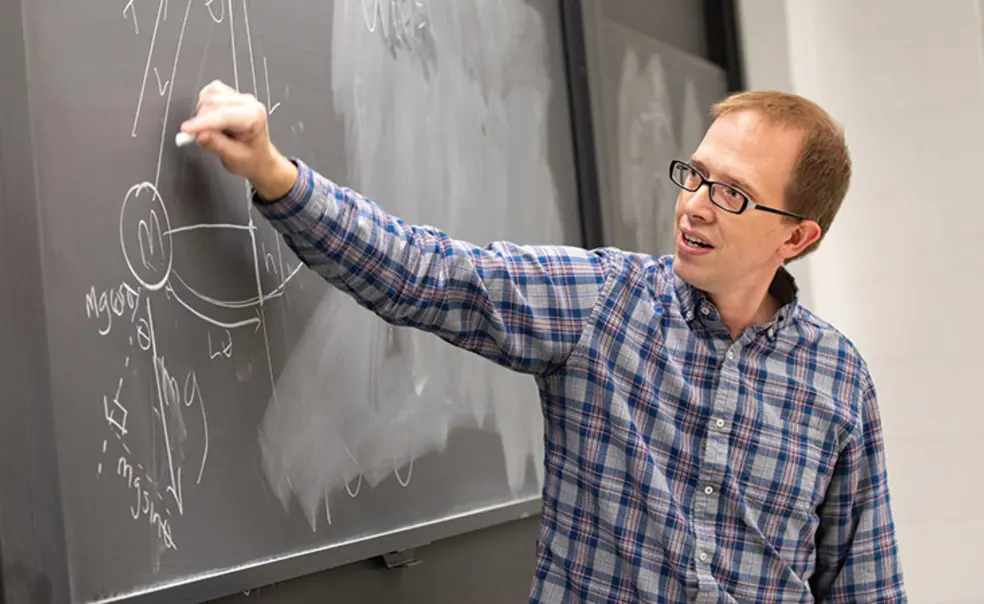Q&A: Andrew Houck ’00 on Princeton’s New Quantum Science Institute
‘We are hoping it will have an enormous impact,’ Houck says of quantum science
In a June update to Princeton’s strategic framework, the Board of Trustees announced priorities that include establishing an institute for quantum science and engineering. Andrew Houck ’00, a professor of electrical and computer engineering and director of one of five National Quantum Information Science Research Centers established by the U.S. Department of Energy, explains what quantum science is, how it’s poised to change the world, and what the new institute could mean at Princeton and beyond.
What is quantum science?
Quantum mechanics was discovered because it’s just how the world works. Then, people started asking, “If we tried to build a computer that’s only bound by the laws of the universe, what could we build?” And we found that you could build a quantum computer more powerful than anything we have today, and it can solve problems that on present computers we deem to be impossible or practically impossible. Over the last 10 years, we’ve started to build these systems, but we are not at a point where they can actually do anything useful.
What’s coming next?
I think we are at this cusp and we are about to see — in the next five or 10 years — these machines start to do things that are useful and better than any other technology. At the same time, this thinking of quantum information is reshaping our understanding of the physical world and our fundamental understanding of the universe, and so a much broader revolution is going to take place.
How might Princeton’s institute impact the field?
I think the time is right, and this institute will be important for securing Princeton’s place as [the home of] leading researchers and teachers in the field. So many of the great ideas in this field come when you have people with different expertise coming together, and at Princeton, we have lots of people who are collaborating across departmental boundaries, which is why I think we’ve been as successful as we are. As there’s now a new discipline, we want to organize around research interests rather than past disciplinary training, and this gives us an opportunity to establish what the discipline should look like.
How might quantum science affect us all?
We don’t know exactly what the impact will be, but we are hoping it will have an enormous impact. For example, there’s a way to use quantum mechanics to make provably secure communication where you can detect the presence of an eavesdropper. Humankind has a number of challenges facing us — from national security to health to climate change — and we hope that quantum information can be an enabling technology that can help solve some of these challenges.
Interview conducted and condensed by Julie Bonette












No responses yet